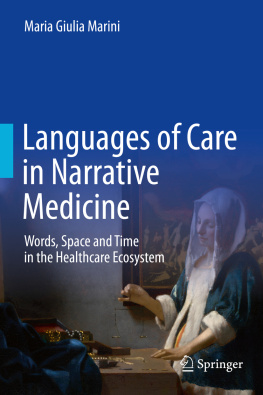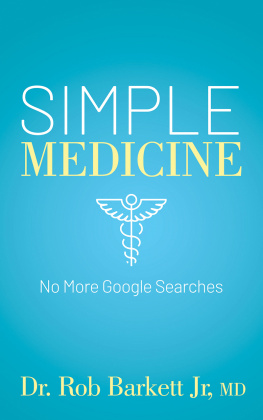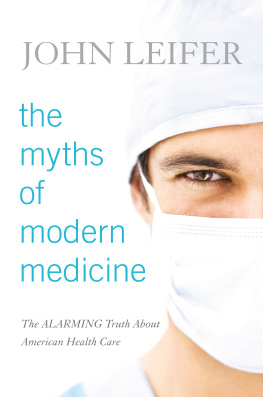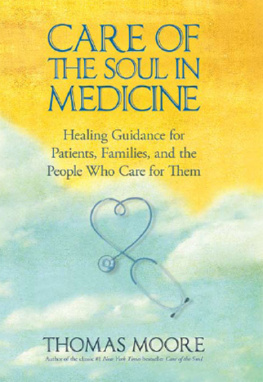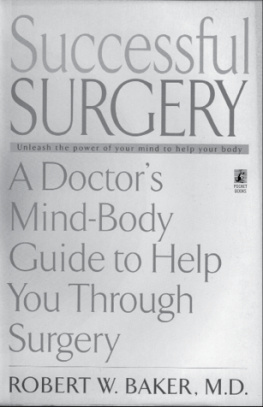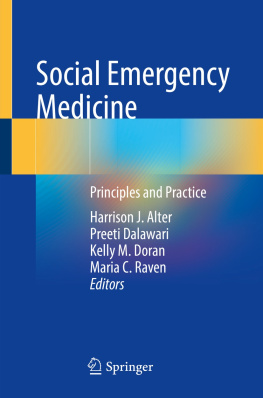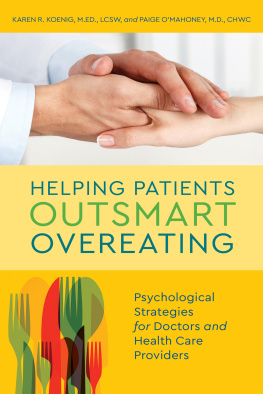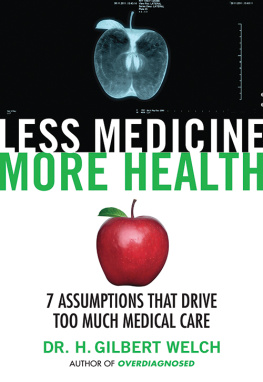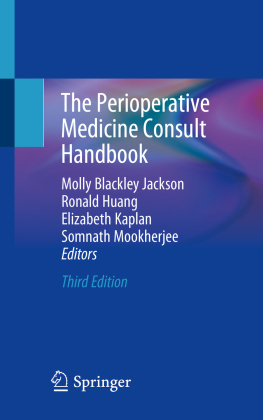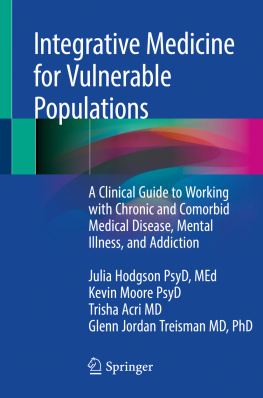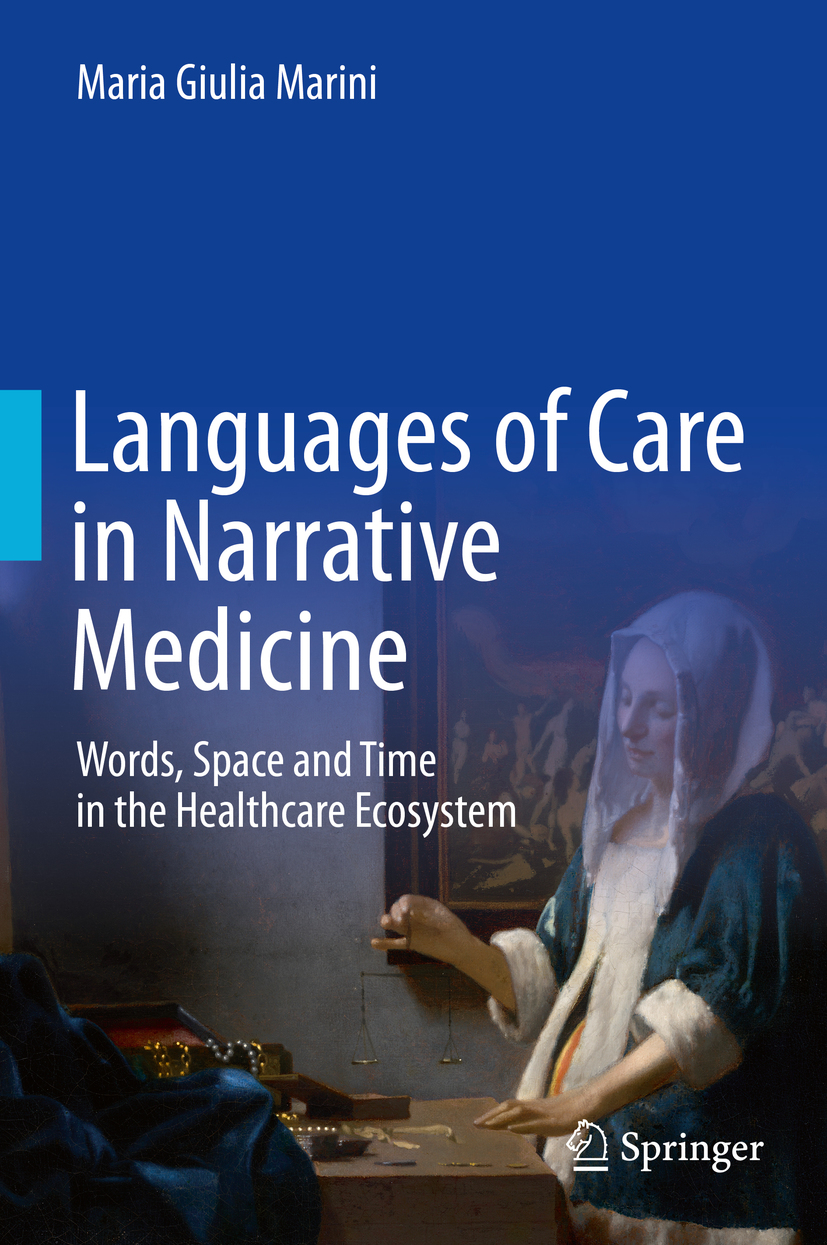Maria Giulia Marini
Languages of Care in Narrative Medicine Words, Space and Time in the Healthcare Ecosystem
Maria Giulia Marini
Department of Healthcare Innovation, Fondazione ISTUD, Milan, Italy
ISBN 978-3-319-94726-6 e-ISBN 978-3-319-94727-3
https://doi.org/10.1007/978-3-319-94727-3
Library of Congress Control Number: 2018951067
Springer International Publishing AG, part of Springer Nature 2019
This work is subject to copyright. All rights are reserved by the Publisher, whether the whole or part of the material is concerned, specifically the rights of translation, reprinting, reuse of illustrations, recitation, broadcasting, reproduction on microfilms or in any other physical way, and transmission or information storage and retrieval, electronic adaptation, computer software, or by similar or dissimilar methodology now known or hereafter developed.
The use of general descriptive names, registered names, trademarks, service marks, etc. in this publication does not imply, even in the absence of a specific statement, that such names are exempt from the relevant protective laws and regulations and therefore free for general use.
The publisher, the authors, and the editors are safe to assume that the advice and information in this book are believed to be true and accurate at the date of publication. Neither the publisher nor the authors or the editors give a warranty, express or implied, with respect to the material contained herein or for any errors or omissions that may have been made. The publisher remains neutral with regard to jurisdictional claims in published maps and institutional affiliations.
Cover illustration: Johannes Vermeer - Woman Holding a Balance, Date 1664. Courtesy: National Gallery of Art, Washington
This Springer imprint is published by the registered company Springer Nature Switzerland AG
The registered company address is: Gewerbestrasse 11, 6330 Cham, Switzerland
This is a trail-blazing book, bringing health care and human understanding closer than ever before. A key feature of the book is the use of shared human concepts (the Natural Semantic Metalanguage) which can help humanise the relations between sick people and the caring professions by offering a new language of care: Basic Human. Its a language that facilitates empathy and deep human connection. This is the first book to take this perspective on illness and care. Reaching other people through shared concepts is an art which can help us at many times, but perhaps especially when we are ill, or care for the ill. I strongly recommend this book.
Anna Wierzbicka, Australian National University
Foreword
In the Language of Care , Maria Giulia Marini sets out both a theory and a method for applying narrative to foster health and healing. While this study has relevance to a variety of relationships, Marinis particular focus is on the clinical encounter, where gaps in knowledge, authority and experience tend to exacerbate stress and suffering.
Marini draws on her prior scholarship in the realm of the health humanities to argue that stories, told formally and informally, can build bridges to overcome these divisions with improved communication, insight and empathy. Using multiple examples, she demonstrates how Natural Semantic Metalanguage can be used as an accessible framework to facilitate the development and exchange of stories between the various constituents of the clinical encounter. Patients or providers may be unsure of where to start, or how to structure a narrative in such a way that it can be expressive not only of ones experience, but expressive to an audience; NSM functions as the template or script, which gives shape to thoughts and emotions for the benefit of both storyteller and interlocutor.
What makes Marinis argument in favour of this humanistic bridge so persuasive is the way in which the entire text is suffused with the humanities, applied as theory, rationale and demonstration. Marini employs varied examples from literature, art, music and popular culture, to first illustrate where healing is needed, and whyfrom the patient who is terrified of his illness to the physician whose efforts to provide care with limited resources have left him stressed and burned outand then to demonstrate how a structured sharing of narratives can facilitate healing: listening, exchanging, comprehending, empathising. Synthesising scholarly sources, interviews with health humanities practitioners, poetry, music, fiction and non-fiction, Marini demonstrates that the Language of Care is one that we all already knowand, with the guidance provided here, that we can apply to enrich our relationships in the clinic, the classroom and beyond.
Carol Ann Farkas
Preface
Healthcare is a complex ecosystem comprising care providers, patients and their families, buildings and facilities, medical and communication technologies, competences, management, waiting times and performance times. Among such variables, we must recall the central position of a patient, a person who unwillingly sees his/her role within this ecosystem suddenly redefined by a disease and inevitably impacted by its internal variables.
Narrative medicine (NM) and narrative carewhich extends to all providers of clinical settingsconcerns the exploration of disease as experienced by the person who is ill (beyond the mechanistic view of the human body) and shaped by its sociological and cultural collocation. Apparently in contrast with evidence-based medicine (EBM), NM integrates the approach to disease and our current way of understanding and managing disease. Providing a new perspective, this new discipline (minimised to current of thought by some) enables us to look deeper into a disease and focus on its components, illness and sickness, and their role in the care of the disease.
EBM can be more effective and efficient by integrating narrative care, leading to less uncured patients, more satisfied patients and a better quality of life and satisfaction for all healthcare providers.
During these years, we witnessed the policies concerning healthcare narrative research by WHO. These policies rely on real, authentic narratives of all healthcare providers, from patients to carers and from administrative staff to citizens. These guidelines suggest a strong integration of EBM with the narratives originating from all stakeholders for an improvement in healthcare.
Following the WHO guidelines, this book focuses on the scientific approach to implement NM. It embodies the classic medical and health humanities, including literature, philosophy, ethics, history, spirituality, mythology, social sciences, anthropology and psychology, in addition to new insights from linguistics and the neurosciences.
I aim to provide a broad multiple approach to NM, which should be called narrative healthcare considering the complexity of the healthcare ecosystem.
The first new input comes from a linguistic point of view based on the concept of natural semantic metalanguage (NSM). According to this theory, all spoken languages across the globe share a core number of universal words, which stem from the ancestral development of perception and reaction to experiences common to all humankind. It can be viewed as our innermost and authentic language that allows individuals to reach out to others and connect beyond any cultural, social and historical upbringing and barriers. It is an important component of a human being and can play a central role where there are natural conditions of fragility in particular.

